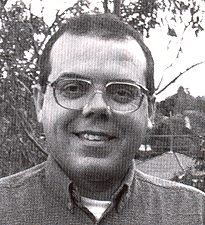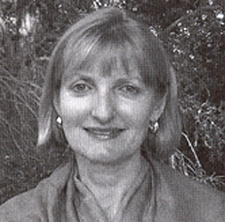Citation: Oliveira, Pedro and Linda."When You Are One with Every Heart That Beats." Quest 95.4 (JULY-AUGUST 2007): 141-143.
 Pedro Oliveira Pedro Oliveira |
The Theosophical Society is now 130 years old. Founded in New York City on November 17, 1875, the Society has had only seven international presidents since its inception: Col. Henry Steel Olcott, Dr. Annie Besant, Dr. George Arundale, C. Jinarajadasa, N. Sri Ram, John B. S. Coats, and Radha Burnier. |
|
An e-learning course offered by the Olcott School of Theosophy of the Theosophical Society in America features each President's inaugural address, journal excerpts, selected writings, historical photographs, study questions, and audio commentary. It also features a video interview conducted by Dr. Tony Lysy, Dean of the Olcott Institute at Wheaton with Joy Mills, former international vice-president and past president of both the American and Australian sections of the Theosophical Society. |
 Linda Oliveira Linda Oliveira |
This well-structured and engaging course includes many tasks, but is very rewarding. It is an exploration of the history of the Society through the lives and work of its leaders. Joy Mills, who has been a member for over sixty years, is a veritable living archive of the Society's work as she has known or met all its presidents, except for Olcott and Besant. She insightfully points out that a living thread weaves its way through the contributions of all these individuals, despite their differences in temperament and outlook: and that is a reverence and commitment to universal brotherhood, freedom of thought, and Theosophy as a living Wisdom.
Henry Steel Olcott (1875-1907)
In his inaugural address, Olcott said that in the future the impartial historian would not be able to ignore the formation of the Theosophical Society. A number of authors have recognized the positive influence the Society has had in the cultural and spiritual progress of the world. Olcott was a journalist, a lawyer, an agriculturalist, an investigator of psychic phenomena, and a man of absolute integrity. He was also a healer and helped thousands with his gift. His contribution to the revival of Buddhism in Sri Lanka (formerly Ceylon) was outstanding and is remembered to this day in that country. He also had a deep interest in the education of the underprivileged children in India and Ceylon. One of his most enduring contributions was the purchase of the property for the International Headquarters at Adyar in 1882. Here he established the Adyar Library and Research Center in 1886, which is patterned after the ancient and legendary Library at Alexandria.
Annie Besant (1907-1933)
Annie Besant was a warrior spirit and fought for many causes. Before joining the TS, Annie Besant was a prominent worker in the field of social and educational reform in England. She had an exceptional mind, and her early book, The Building of the Kosmos (1894), is a deep presentation of Theosophy.
In 1908, she formed the Theosophical Order of Service (TOS), which aims at applying the theosophical worldview in every department of life. She had a global vision. In her inaugural address as president of the TS, she encouraged the "perfect toleration of all differences." Her contribution to India's political freedom and cultural regeneration was crucial and thousands came to listen to her speak. She was also one of the keynote speakers at the 1893 Parliament of World Religions in Chicago.
In the introduction to The Secret Doctrine, HPB had mentioned that a more advanced student would come in the twentieth century to further expand the teaching of the Wisdom Tradition. In 1909, Besant's colleague, C. W. Leadbeater, discovered the young J. Krishnamurti on the Adyar beach in Madras (now Chennai). In 1911, Besant and Leadbeater formed The Order of the Star in the East around Krishnamurti. Annie Besant nurtured Krishnamurti who held a deep love for her until the end of his life. She maintained that "diversities enrich the movement, as long as love rules and charity judges."
George Sydney Arundale (1934-1945)
George Arundale was like a son to Annie Besant. He worked very closely with her on her educational and cultural programs in India.
As a boy in London, young George had contact with HPB, and she gave him a box of chocolates. As a result, Arundale was committed to helping young people. He had a commanding presence which was felt throughout the Society as well as an enduring sense of humour. For him, Theosophy was a living reality and very practical.
Arundale was president of the TS during the war years (1939-1945). He encouraged young people to help the millions who died in the war by working with the dead on the subtler planes of existence. His motto was: "Together though differently" and he advocated a non-dogmatic presentation of Theosophy.
Curupumullage Jinarajadasa (1946-1953)
Jinarajadasa, or Brother Raja, as he was affectionately known, was a transitional president. A remarkable person and well-known as a lecturer and writer, Jinarajadasa emphasized the aesthetic side of Theosophy.
Discovered by Leadbeater in Ceylon at the end of the nineteenth century, Brother Raja was educated at Cambridge and became a linguist. He lectured in Spanish as well as Portuguese in many South American countries.
Jinarajadasa led the reconstruction work of the TS in Europe after the war. He was a great supporter of the United Nations, and during his presidency the Society was briefly affiliated with the UN, as an Non-Government Organization.
Brother Raja had a special interest in theosophical history and was a great archivist, having edited the Golden Book of the Theosophical Society. His book The New Humanity of the Intuition presented his view of the future development of humanity.
Jinarajadasa was a talent scout. He brought many young members from different parts of the world into contact with each other. He also conceived the Ritual of the Mystic Star, which celebrates the essential unity of all religions. Theosophy was for him a "joyous experience."
Nilakanta Sri Ram (1953-1973)
N. Sri Ram pointed to a different dimension of Theosophy. His contribution represents a new perception—the awakening of consciousness to the buddhic (intuitional) level. For Sri Ram, Theosophy was Wisdom in action.
In her comments about his first visit to the United States in 1948, Joy Mills remarks: "A most remarkable person. A presence of gentleness, a quiet power." N. Sri Ram presided over the 1966 World Congress in Salzburg, Austria, with calm, inherent dignity and a quiet and dignified authority. During his presidency the current building for the Adyar Library and Research Center was erected.
N. Sri Ram was a world traveller, a scholar, and a real Theosophist. He had an aphoristic quality to his thought and writings and a deep regard for Krishnamurti and his teachings. The writings of N. Sri Ram emphasize the possibility that consciousness could unfold its own essential nature into a state of wisdom and love. All those who came in contact with him were deeply affected by his gentleness, wisdom, and selflessness.
John Balfour Symington Coats (1973-1979)
John Coats was very much loved by young people and he encouraged them in their work for the Society. He presided over the World Congress in New York City in November 1975, which commemorated the centenary of the Theosophical Society, inviting Boris de Zirkoff to be the keynote speaker.
Joy reminisces that at the official banquet on that occasion, John wanted an empty chair at the centre of the table, "dedicated to the Great Ones." "There was presence, a silence," Joy recalls, "that those of us who were there will never forget."
Coats was an extrovert who embraced everybody--literally. He was a passionate speaker, had a tremendous love for humanity, and toured the theosophical world many times.
In the centenary issue of The Theosophist (October 1979), Coats wrote: "Throughout the world, let the love of power be replaced by the Power of Love."
Radha Sriram Burnier (1980-)
Elected in 1980, Radha Burnier has been re-elected ever since. The daughter of Sri Ram, she was born in Adyar and is a Sanskrit scholar, with a MA degree from the Benares Hindu University.
She emphasizes the Wisdom aspect of the theosophical teachings, and her keynote is Human Regeneration. She sees Theosophy as the Wisdom Religion, an expression used by HPB in her writings.
Radha leads a life of disciplined simplicity and loves animals. She enjoys the presence of many furry friends in her house (including a dog named Soli).
Radha has also toured the TS world several times over and shares with members and the public her insight into the human condition and how the human mind can come out of its predicament.
Universal Brotherhood: the cornerstone
Each successive President, in his or her individual way, has struck the same essential keynote: the Theosophical Society exists to help people realize the profound truth of Universal Brotherhood; that humanity, in its essence and at its heart, is forever one family in its fascinating diversity of creeds, cultures, and dreams.
In order to achieve this goal, freedom of thought is vital as "there is no doctrine, no opinion, by whomsoever taught or held, that is in any way binding on any member of the Society, none which any member is not free to accept or reject."
For anyone interested in the history of the Theosophical Society and its work, this course is an important and informative source. It shows why the Founders' dream is still alive after 130 years.
Pedro Oliveira joined the TS in Brazil in 1978 and worked in several capacities. He served as international secretary at Adyar between 1992 and 1996. In 2001, he was elected president of the Indo-Pacific Federation of the TS, and re-elected in 2004. He works as education coordinator of the TS in Australia and has lectured extensively, in Australia, the Indo-Pacific region, and other countries as well.
Linda Oliveira joined the Theosophical Society in 1971, first as a member of Canberra Lodge and subsequently as a member of Blavatsky Lodge, Sydney. She completed a Bachelor of Arts degree at the Australian National University, majoring in psychology and political science. In 1981, she was a student at the Krotona School of Theosophy in California, and also worked for a time at the national headquarters of the American section. Linda was a member of the General Council and has held the office of national president of the Theosophical Society in Australia since 2002. She believes deeply that a genuine exploration and understanding of the Wisdom teachings can provide an opportunity for human spiritual transformation, which is so badly needed in today's world.

